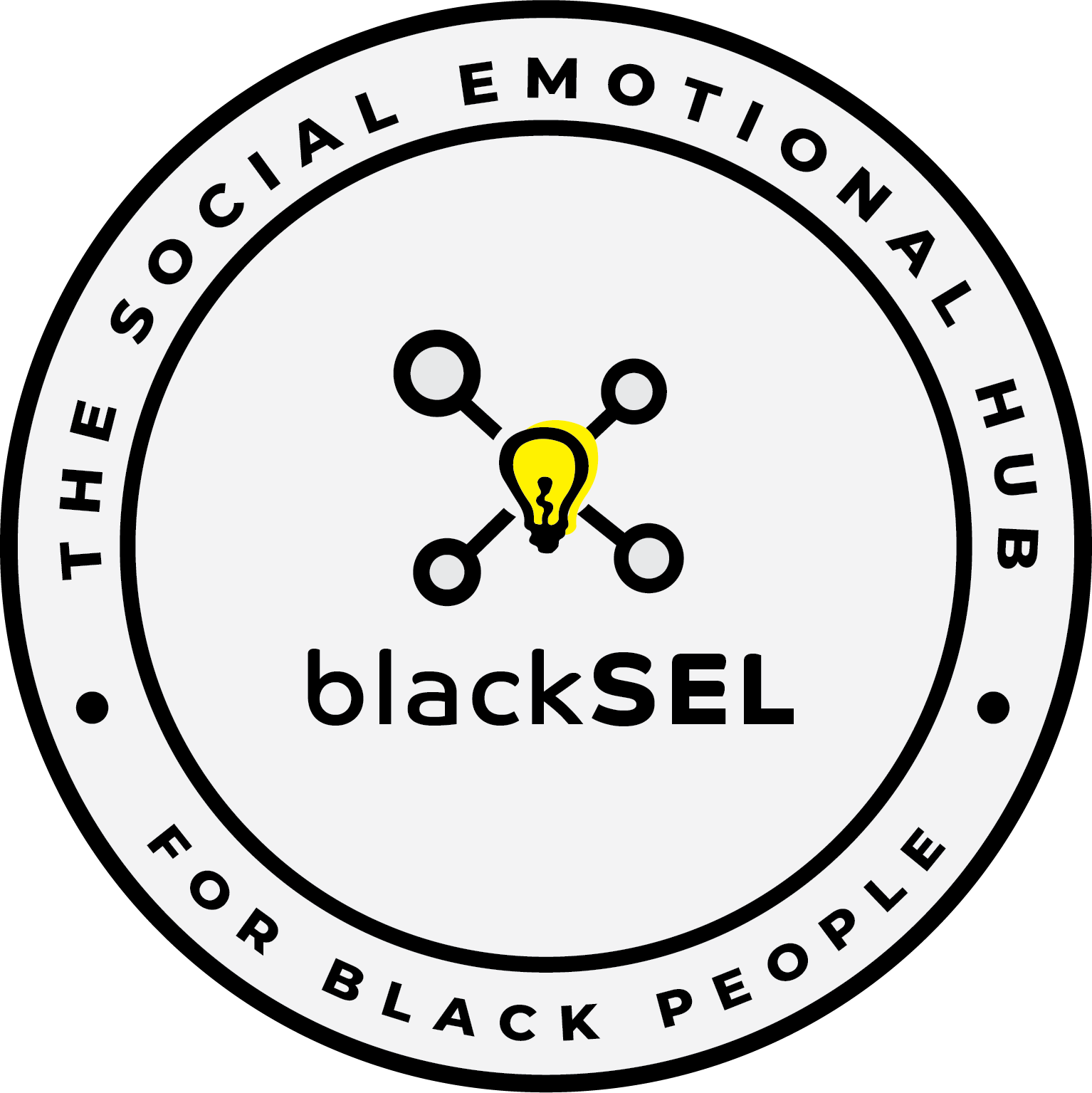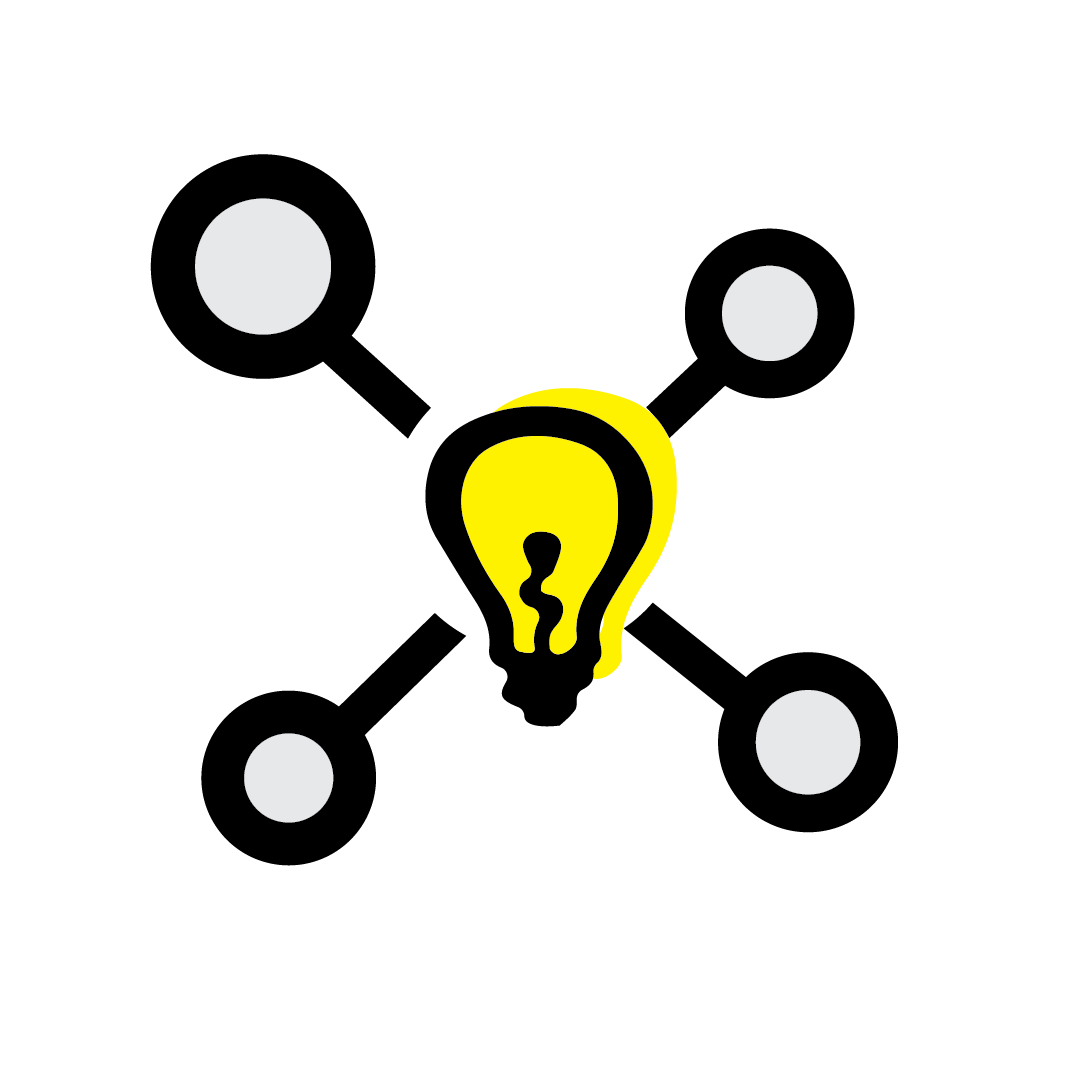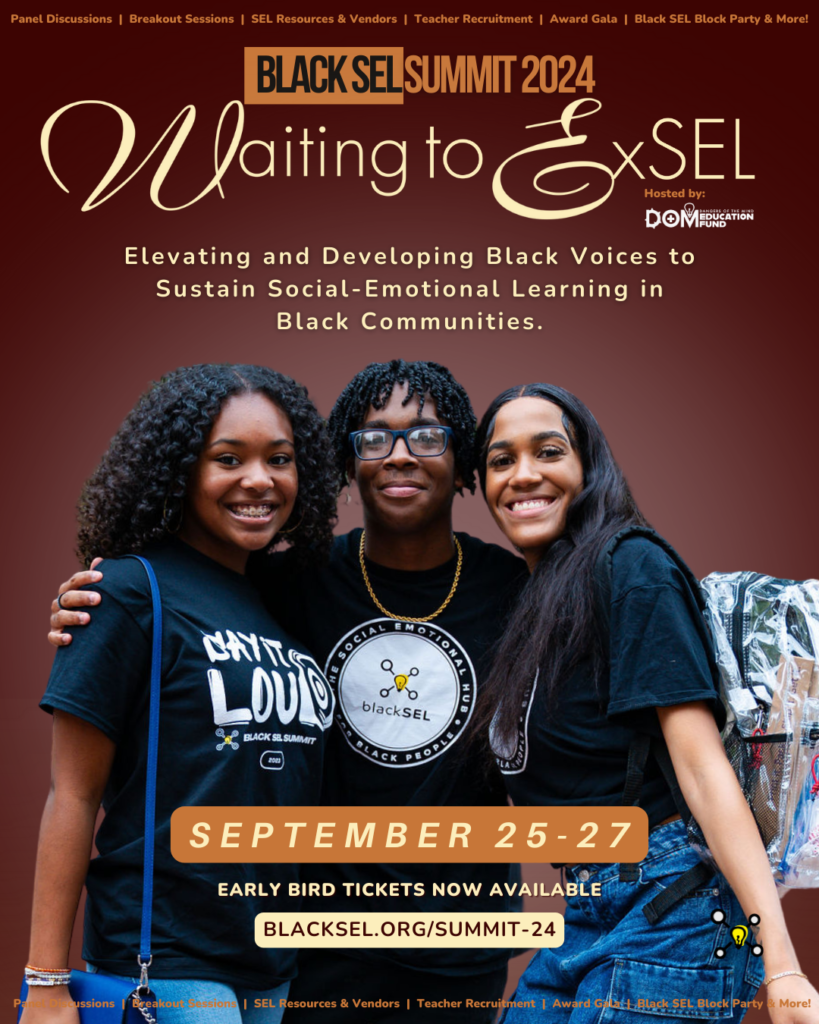Get to Know Us.
Empowering and Cultivating Black Communities through SEL Transformation
After six years of SEL training, forums, workshops, and constructive discourse with teachers, parents, and students, Dangers Of The Mind and thought leaders in education collaborated to establish Black SEL: the social-emotional learning HUB dedicated to black communities.
The HUB strives to amplify the voices of Black SEL practitioners and extend SEL initiatives beyond the classroom to encompass the wider community. By sharing resources, our aim is to advance the field and ensure the continuity of social-emotional learning practices within Black communities.
Black SEL empowers and nurtures for the transformation of Black communities. We honor generations of community and ancestral wisdom, leveraging it to empower Black communities and schools, fostering dignity and equity within these institutions.
Our mission
To reach, teach and build a system of strong black leaders that understand the importance of Social-Emotional Learning (SEL) and ways to expose and sustain SEL in black communities.
Our essence
We aim to highlight and elevate the educators and the voices of African American people in the social-emotional field.
Our promise
We create healthy dialogue around policy, critical race theory, and strategies to introduce and enhance social-emotional learning for surrounding communities and its key stakeholders.
Our vibe
At Black SEL, we believe Social- Emotional Learning will not be a trend in black communities, but a sustainable practice to advance and heal people of color, one community at a time.
What is Black SEL?
Black SEL is a customized approach to social and emotional learning (SEL) that serves as a primary vehicle for cultural transmission, specifically tailored to the experiences, needs, and cultural contexts of Black students and communities.
Black SEL acknowledges the unique hurdles presented by systemic racism, prejudice, and marginalization. By employing culturally affirming methods, Black SEL endeavors to empower Black students and communities with the skills needed for success, promoting resilience and fostering positive social-emotional growth.
Through a focus on lived civics, community stakeholder inclusion, civic attitudes, social responsibility, racial identity formation, and critical consciousness, our framework cultivates inclusive and supportive learning environments for Black youth and communities. This approach empowers them to thrive and reach their full potential.
Why Black SEL Matters
It is clear in the field of social and emotional learning that studies have not yet examined how the lived experience of Black Americans are uniquely impacted by social and emotional learning programming and materials.
The need for Black SEL has arisen from the number of disparities for African American people. Education, crime, social welfare, healthcare, and economics are all areas in which vast disparities exist between African American and White Americans (Moriel 2024, State of Black Americans). Durlak (2011) and Cipriano (2024) show the clear benefits of SEL.
Our work as a Black SEL organization over a course of three years has given us the privilege to impact over 1,000 Black students ages 13-18. Our direct work with these students has revealed to us that a significant number of Black students are (a). unaware of the value of SEL competencies (38%) and (b).can not connect these competencies to their lived experience (50%). We believe that in order for the African American community to truly benefit from SEL programming and the outcomes as referenced by Durlak (2011) and others (Cipriano, 2024) that we must recognize that learning is dual social and emotional and contextual (Jones 2017). In the spirit of context, moving forward as SEL practitioners impacting black lives, we believe that future SEL work must be grounded in the black lived experience and subsequently critiqued, embraced, and owned by members of the African American community. It is in the space of context that Black SEL as an organization is poised to help define. We seek to build the bridge between SEL for all communities and the unique needs of the Black people.
Our Research
Over a two-year period, Dangers of the Mind connected with over 916 Black and Brown students through a survey, 600 parents, 75 teachers, and 4 superintendents to understand needs in their communities.
We heard an overwhelming need for shared resources and community to build a school culture that affirms Black and other marginalized students.
Through this research, we learned about how students would like to be engaged and the types of resources that leaders inside school buildings need to better support marginalized students. Based on this insight, Dangers of the Mind Education Fund launched Black SEL.
The Black experience in the United States in the western world is based on historical and systemic racism from slavery, colonization, and Jim crow AND one of reSELience from building social movements, cooperative economic structures, and culture that prioritizes and heals Black people.
Black SEL is about acknowledging the ways that SEL competencies have been present in black communities long before the designation or study of social-emotional learning.

Meet the Team

Kristen Hopkins-Vincent, M.Ed.
Creator Black SEL
Founder & Executive Director Dangers Of The Mind Education Fund

Dr. Taneisha Lee-Brown, Ph.D.
Director of Research

Abdulai Munkaila, Ph.D.
Research Associate

Ashley Mathews, MSW
Research Coordinator

Damaris Fletcher, M.Adv
Creative Director

Michaela Stovall, M.Ed.
Project Manager

Frances Lee
Program Coordinator

Alex Lewis,MSc
IT Director

Donyae Traewick
Administrator

Olivia Henson
Social Media Coordinator
Advisory Board
Our Advisory Board members come from diverse professional backgrounds, enabling us to establish strategic partnerships that enhance the visibility and implementation of social-emotional learning in Black and Brown communities.

Dr. James Comer. MD, MPH
Professor
Yale University Child Study Center & Honorary Member of BlackSEL.org

Dr. Bettie Ray Butler, PhD
Director
M.ED Urban Education Program
University of North Carolina at Charlotte

Minnie Forte-Brown
Chief Executive Officer
Forte-Brown Consulting

Bryan Perlmutter
Founding Partner
Piece By Piece Strategies

Dr. Ralph Simpson
Deputy Superientent
Clayton County Public School District

Joshua Vincent
Executive Director
Southern Vision Alliance
Get in touch with us
We look forward to connecting with you! We understand that it is important for you to access our services, we will respond to your message between 24-48 hrs.

Black SEL is a customized approach to social and emotional learning (SEL) that serves as a primary vehicle for cultural transmission, specifically tailored to the experiences, needs, and cultural contexts of Black students and communities.


